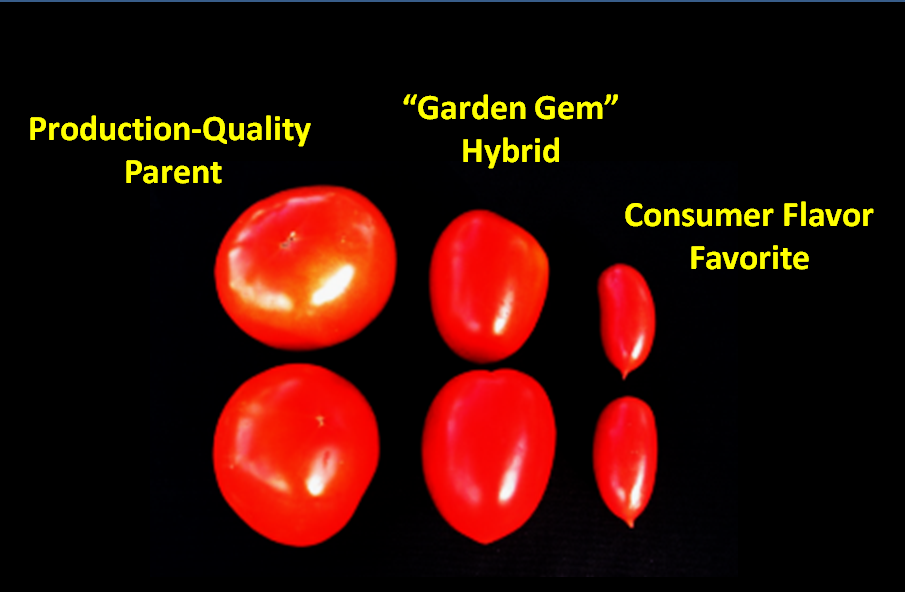New Heirlooms

Here you can get the seeds that represent the future of fruits and vegetables-- New Heirlooms. These are Garden Gem and Garden Treasure tomatoes, new varieties produced by Dr. Harry Klee's lab at the University of Florida. You can get seeds as a "thank you gift" in exchange for a small donation to his research program. Garden Gem and Garden Treasure are two "new heirloom" varieties that were bred starting with consumer evaluation of huge numbers of heirloom varieties. The best tasting were combined with a line that provides strong production traits. The result- A great-flavored tomato that performs well! CLICK HERE , and donate $10 or more to tomato improvement at the University of Florida. As a thank you gift you'll receive 20 Garden Gem and 20 Garden Treasure seeds. Put your shipping info in the space on the bottom. (Don't fill out "appeal code") Here's the Story: When you order a sandwich at Sub










